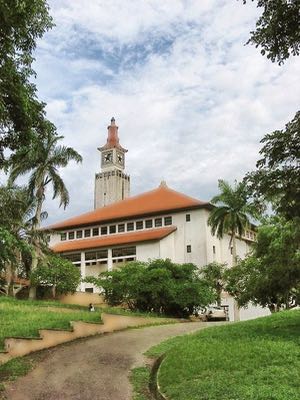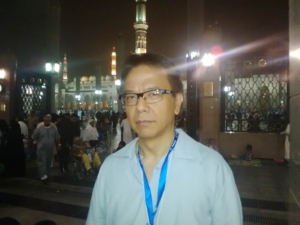IARJ Conference Reporting on Religion and Spirituality in Africa

ACCRA, Ghana—The International Association of Religion Journalists is bringing together leading religion journalists and scholars for our July 28-29, 2016, conference Reporting on Religion and Spirituality in Africa.
We invite our readers to follow news from Ghana by following us on social media: Facebook—The International Association of Religion Journalists and Twitter—@RJournalists. We will be using the hashtag #IARJGHANA
The conference is primarily designed for our African colleagues who are covering religion throughout a continent that is increasingly shaping world news. Front page headlines emerge regularly from this continent as African nations find themselves struggling with legacies of colonialism while also trying to empower the region with such a complex racial, ethnic, cultural and religious mix of peoples.
Just how big is Africa? If you combine the USA, China, India, Europe and Japan—they all fit into the continent of Africa. Efforts to bring journalists to the conference from Ghana and from other African nations have taken long hours of coordinated planning by our staff, including co-managing-directors Larbi Megari, who is based in Algeria, and Elisa DiBenedetto in Italy. They will be in Ghana helping to coordinate the conference, as well.

This is the sixth IARJ conference and the first time we have met in the African continent,
said IARJ Executive Director Endy Bayuni, who also is the senior editor of The Jakarta Post, the largest English-language newspaper in Indonesia. Since IARJ’s founding in 2012, conferences have been held in Bellagio (Italy), Belo Horizonte (Brazil), London, Boston (Massachusetts), Brisbane (Australia), and Buenos Aires (Argentina).
We want to thank our major sponsor, the Companhia Brasileira de Metalurgia e Mineração (CBMM), and also the University of Accra for hosting us,
Bayuni said.
Why is Africa of particular interest to journalists and scholars who focus on religion?
Africa is so huge and has so many diverse countries that we do see all of the world’s big religions represented—but we also see many indigenous faiths existing alongside the major religions.
We know that this situation can raise problems, conflicts and tensions between the different traditions and practices. But this diversity also can enrich the lives of people. I’m proud that the IARJ now is coming to Africa not only to discuss the best practices for reporting on religion—but also to lift up the rich experience of Africans who are living peacefully and handling the tensions and conflicts between the different communities. The world can learn a lot from the experiences and insights of Africans.
The conference is aimed at facilitating fruitful encounters between religion journalists from various countries across Africa. The meeting is designed serve participants with shared resources, collegial relationships as well as practical tools necessary to meet the highest standards of reporting on issues of religion and spirituality in Africa. The Conference will explore such topics as inter-religious dialogue; covering extremism and conflict; how religious information sources are dealing with media outlets and journalists; trends and latest research on issues in global religion; religious minorities in Africa; women and religion.
Participants also will meet in working groups with distinguished regional and global colleagues to discuss and identify key stories on religion that need to be told and share resources from their own nations and experiences.
The conference reflects the spirit described in the IARJ mission statement:
The International Association of Religion Journalists is a global network of journalists promoting excellence in the coverage of religion and spirituality. It provides services and resources to strengthen and support the work of its members. It engages media leaders, educational institutions and communities on the importance of accurate, balanced, and ethical religion coverage to foster understanding.
